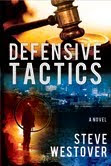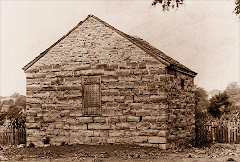
When I was 5 years old, my neighbor friend Tommy and I often discussed weighty childhood subjects around the flagpole in my yard. On one occasion the discussion turned to Santa Claus and I, in a very matter of fact tone, told him Santa Clause was dead. He promptly ran home, crying to his mother.
I felt bad, but it was true. My parents told me about how St. Nicholas had lived centuries ago and was the inspiration for the modern Santa. My parents accepted Santa as a fun story, but wanted their children to understand the difference between the story and reality. Like my parents, I did not intend to shatter my friend’s childhood belief in Santa, but merely expressed the truth that the story of Santa Claus and flying reindeer was just that…a fictional story.
I know this can be a controversial subject. Even in my house my wife and I don’t exactly see eye to eye on this, so I am going to drop it here. But this subject ties in to another question I’ve been wondering about lately.
What is the relationship between truth and fiction? Or put another way, does fiction have some responsibility to be honest?
With Santa Claus, we repeat the story over and over and expect that everyone now, or someday will know that it is just a story. But what about when fiction ties closely to real events or history? Should we assume that readers would be able to draw the line between the truth of history and the fictional premise or relationships posed in the writing?
For example, I love the Kingdom and the Crown series, which fictionalizes events and relationships surrounding the life of the Savior. These books paint the picture of the time and circumstances in which the Savior lived during his mortal ministry. In these books, the things that really matter regarding faith and the life events and mission of the Savior are presented as historical truth and the fiction merely surrounds the true events but does not attempt to alter or stretch the truth.
I also love the Left Behind series, which fictionalizes the events leading up to the end of the world as interpreted loosely from the Book of Revelations. How many readers know the difference between the doctrine regarding the end of the world and the fictionalized account of what might happen? I suspect that there are many who believe the fiction of the Left Behind series to be truth.
I pose these questions, not because I have answers, but because I’m curious and hope to learn. Is there a line we should not cross in mingling fact and fiction for the sake of honesty and truthful representation? Whether its fiction based loosely on church history or the Civil War, or the life of Christ or end of the world scenarios, should we worry about honesty, or simply call it fiction and hope readers can tell the difference?

























I know many authors who are scrupulous about adding chapter notes/end notes/footnotes within their fiction to make sure they don't lead their readers astray. It's an important point, and I think we bear a responsibility as writers to be honest in our relationship to readers. Don't break their trust in us . . . or their hearts!
ReplyDeleteI know how I felt after reading Leon Uris' Mila 18 to find some inconsistnecies with his story and the actual events of the Warsaw Ghetto. Although he'd done an amazing job, and for the most part was historically acurate, there were a few times where he'd manipulated the truth for the story. I could name a half dozen other books where this same thing happened and I eventually came to realize my reliance on fiction for historical knowledge was misplaced. Yet as a young reader I believed all the historical details. I wish authors were more upfront that way with end notes: this really happened, this might have happened.
ReplyDeleteI love historical fiction and assign it to my children as reading along with their biography and history reading. That being said I make sure that they read it as fun literature written about the time period they are studying but not as fact. I hesitate to say it but, I don't think an author should be/feel obligated to add footnotes and historical references to his/her writings within a historical fiction book. It's wonderful when they do, I have enjoyed it immensely when accurate historical explanations are included by the author. I would hope that an astute reader would know that this type of book is not meant to educate them on that particular era of history. However, it is not the author's obligation to disclose truth from fiction - you have chosen a fiction book. If you prefer to read from an author who makes these distinctions, keep buying their books. If an author doesn't and you don't like that, don't buy their books.
ReplyDelete(You is generalized here, of course. Just to provide that distinction. :D)
I have a hard time with historical fiction. I avoid it like the plague. I don't want fictionalized accounts and conversations clouding my memory. I love Alison Weir books, but I do not like to read her historical fiction because I don't want to remember that Queen Elizabeth said something she never said. And sometimes historical fiction can be damaging and often seems to end up being more fiction than history and there really isn't a way to know this is the case unless you are very familiar with the subject matter. Sometimes it's hard even if you are very familiar with the subject. Sadly, too many people use historical fiction to fill in the holes that they don't know about history rather than finding out what really happened. It's just a sad fact of life. Personal research is underrated.
ReplyDelete